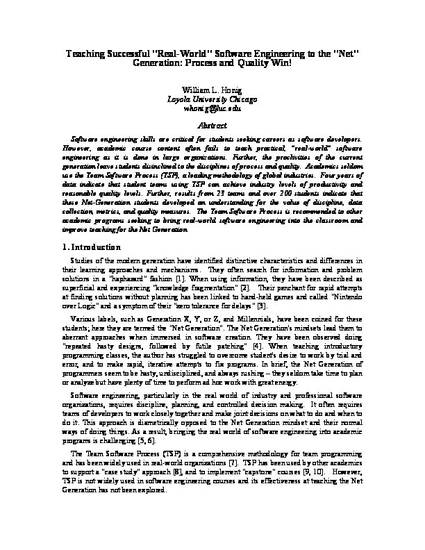
Software engineering skills are critical for students seeking careers as software developers. However, academic course content often fails to teach practical, "real-world" software engineering as it is done in large organizations. Further, the proclivities of the current generation leave students disinclined to the disciplines of process and quality. Academics seldom use the Team Software Process (TSP), a leading methodology of global industries. Four years of data indicate that student teams using TSP can achieve industry levels of productivity and reasonable quality levels. Further, results from 23 teams and over 200 students indicate that these Net-Generation students developed an understanding for the value of discipline, data collection, metrics, and quality measures. The Team Software Process is recommended to other academic programs seeking to bring real-world software engineering into the classroom and improve teaching for the Net Generation.
© © 20xx IEEE. Personal use of this material is permitted. Permission from IEEE must be obtained for all other uses, in any current or future media, including reprinting/republishing this material for advertising or promotional purposes, creating new collective works, for resale or redistribution to servers or lists, or reuse of any copyrighted component of this work in other works.
